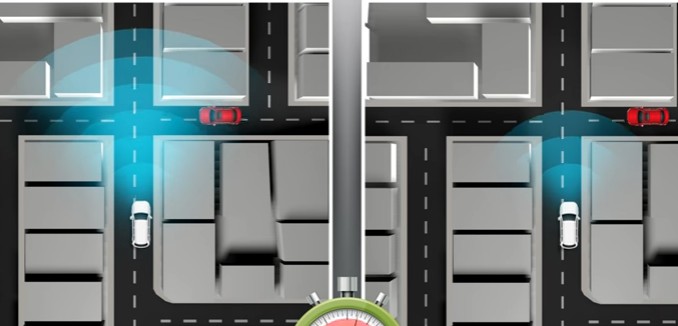An Israeli maker of vehicle-to-vehicle (V2V) communication systems raised $30 million in its latest funding round, allowing it to expand its global operations, Globes reported Wednesday.
Autotalks has raised $70 million to date, including the latest round.
News of the latest investments in the company comes as the United States Department of Transportation (USDOT) issued new guidelines that would require V2V technology to be included in all light vehicles sold in the country by 2023 in order to improve road safety. The chipsets produced by Autotalks are the most advanced that can address this new requirement.
In order to meet the USDOT target, car manufacturers will begin including the systems in 2019 model year cars. Autotalks has increased productions of their chipsets and concluded agreements to supply several major automakers with their V2V systems.
“We are very pleased with the completion of this financing round, supported by such strong syndicate,” said Autotalks CEO Hagai Zyss. “It demonstrates clear vote of confidence in Autotalks’ ability to execute and gain a leading market share. Our mission to equip vehicles with such lifesaving technology is now being adopted by the regulators and leading car manufacturers. I believe our chipsets will soon be part of most new vehicles worldwide.”
Founded in 2008, Autotalks is based in Kfar Neter in central Israel.
Avi Jorisch, a senior fellow at the American Foreign Policy Council, observed earlier this month that Israel was becoming a global center for automotive technology. Central to this development is a push by auto manufacturers to develop autonomous vehicles. Jorisch explained:
Future cars will use less sheet metal and iron and rely more on software. Engineers must overcome huge challenges to seamlessly integrate cutting-edge computer chips, communication devices, and data analytics, all while protecting vehicles and drivers from potential cyberattacks. Israel’s strong military and academic culture, along with its edge in information technology and cybersecurity, gives it a competitive advantage.
Israel has more than 5,000 startups and 750 venture-capital-backed companies, and the country attracts more venture money than any other country in the world relative to the size of its economy. In addition, Israel’s so-called Silicon Wadi, or valley, has the second largest number of technology startups per capita, right behind California. Even though Israel lacks a native automobile production industry, companies focusing on this global sector comprise about 15 percent of Israel’s industry sector businesses, and their numbers are growing steadily. In the last two years, Israeli automotive startups have raised $820 million, according to Yoram Oron, founder of Vertex Ventures and a member of the Singaporean sovereign wealth fund Temasek Holdings. In addition, over 500 Israeli companies are currently focused on creating the infrastructure for driverless vehicles.
Last week, U.S. tech giant Intel confirmed that it is acquiring Jerusalem-based Mobileye, a leader in developing the sensors necessary for driverless cars. The deal–reached for a record $15 billion, the biggest ever exit in Israeli history–prompted Intel to move its automotive technology unit to the Jewish state, effectively validating Jorisch’s observations.
Some of the world’s top car makers have set up research and development centers in Israel, including General Motors, Honda, Volvo, and Daimler, which owns Mercedes-Benz. Last year, Ford bought an Israeli startup that specializes in machine learning.
Shanghai Automotive Industry Corporation, a leading Chinese auto manufacturers that owns Volvo, also opened a development center in Israel last month.
[Photo: Autotalks / YouTube ]




